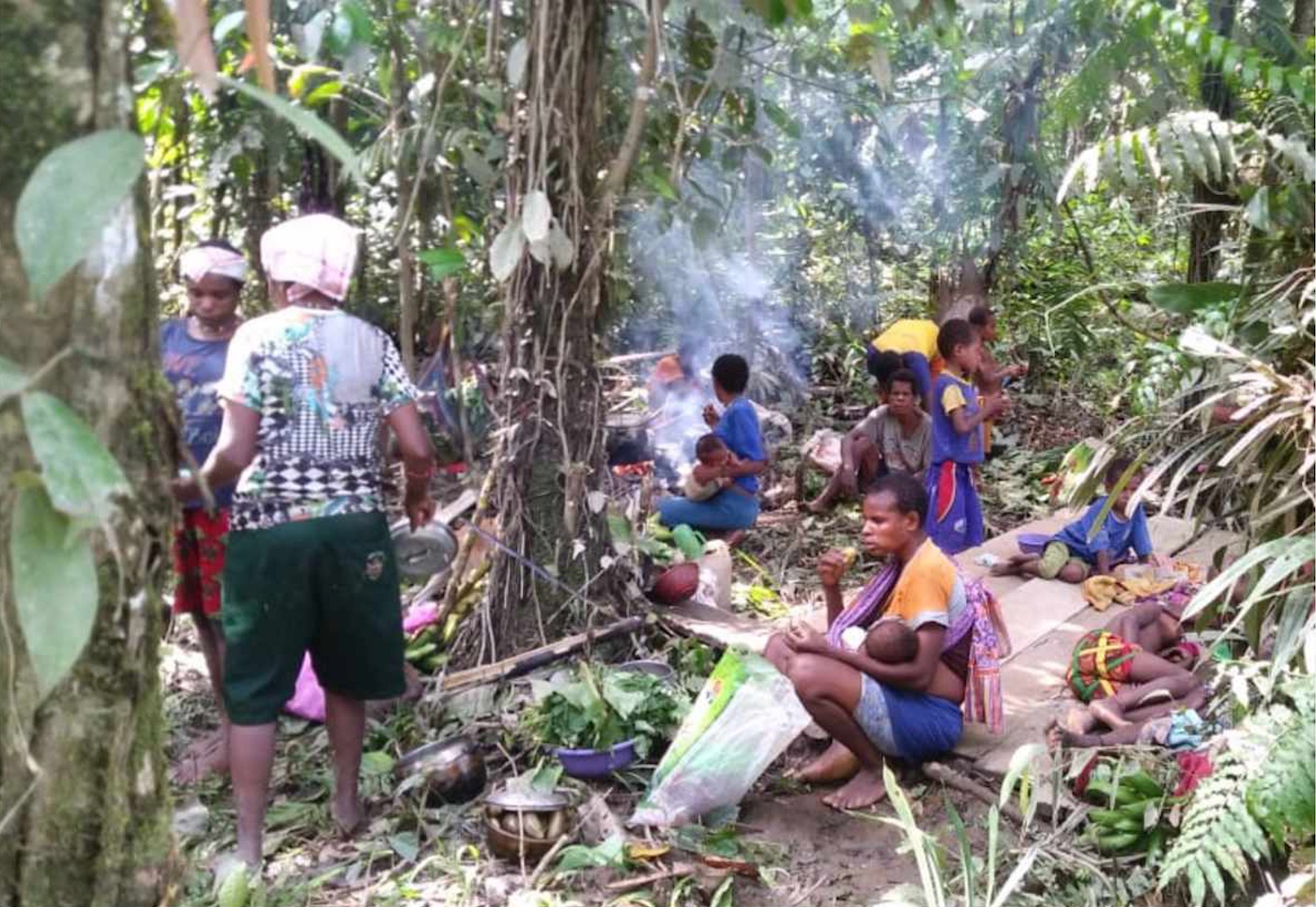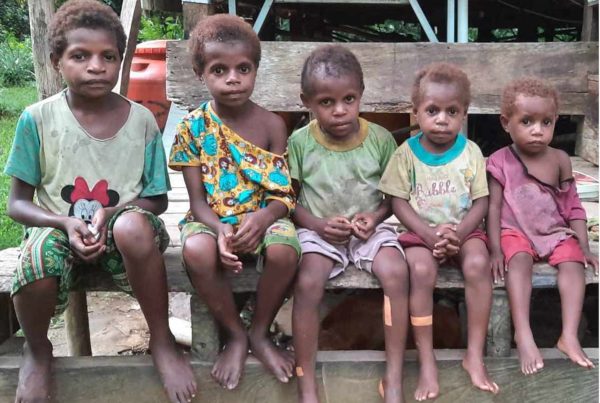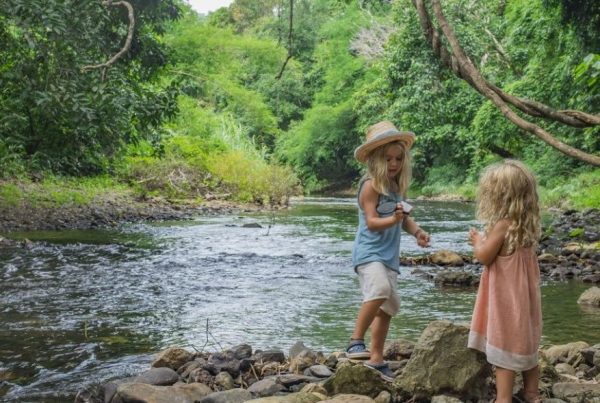My journey to preparing to be a missionary started long before I went on the field. I remember as a young girl, dreaming about rocking displaced babies to sleep, and sleeping in a simple room with just a cupboard and a bed, and these were my happy places. In year 7 I accidentally chose Indonesian language as an elective and went to my supervisor to complain that it was accidentally chosen, and he said to try it for a term and then to quit after that. I tried it, I loved it and continued to study it not only all the way through high school, but then at university as I trained as a primary teacher, then majored in Indonesian and then began teaching it for a couple of years before I had my kids.
A few years before, when I met my husband, who had just spent four years as a teenager living on the mission field with his parents, the discussion about missions had come up, and our desire to go, and it was then that I realised that God had started working on our hearts, and equipping us with the skills we needed, long before we were ready to go. With this was also the comfort that if God had put it on our hearts to go and had started preparing us long in advance, then He would also sustain us throughout the journey.
After leaving Australia and living in a city in Indonesia for three years for my husband to learn Indonesian, and so I could be caught up on it after nine years of not actively using the language, it was decided that our team would move into a second location. It was in the humid swamplands of Papua, Indonesia in a small semi-nomadic village of around 200 people. The only way to get there for us is in an eight-seater plane, which takes about 1hr 45 mins. The other way is by river with dangerous rapids which the locals weren’t keen on us taking, as they didn’t want to be responsible for us not making it. Their houses were made from hand woven roofing and jungle materials, there was no electricity, shops and no vehicles, other than their hand carved canoe that they make out of large trees that they used to get up and down the river. I knew all this information before I moved in, but they first time I got to see it was when my husband has already started building our jungle house there, and my brother came across to help build, and he flew in with me and our three children (aged 13, 12 and 12). This is also when I fell in love with the people.
I really did feel a connection to the people the moment that we landed, and the people swarmed to shake our hands. From that moment on we always felt welcomed and protected by the people, and at home in our village. Loving them didn’t always mean that it was easy to be there, but it was what helped keep us there for such a long period of time.
The people knew that we are there to learn their language and teach them about God, which they had never really understood, because they had been taught in Indonesian, but not many people in the village spoke that language, or to a level that they could understand. Our task was to live amongst the people, learn the language, (which was not written down and was tonal) write an alphabet, teach them to read and write their own language so they can read the bible, share the gospel message, and translate portions of scripture.
The task seemed enormous, but our team was eager to start and a got straight into language learning by repeating the phrases “what is this, what is that?” while pointing at an object, and then recording their answer so we didn’t drive them crazy by asking them the same objects over and over again. Yes, I felt like a two year old every time I left my house, but I slowly learnt to laugh at myself when people laughed at me.
Not only did I feel like that with language, but with whatever all the other ladies did so easily that I couldn’t: like making string bags, walking along slippery logs without shoes on, cutting up firewood with a machete, and carrying it, along with your days produce in your string bag around your head, weaving the roofing for the huts and washing sago through a trough to make sago, which was their staple diet. I felt like such an outsider, and none of these things looked easy, but I was willing to be a learner.
I didn’t learn every skill they had, but after hours of watching, asking lots of questions and asking someone to help me start, I was able to sit with the ladies and make string bags. They were always willing to fix up any mistakes I made, and there was plenty of those. I found it so relaxing, and it was something that we could do while we were chatting, which made it less uncomfortable when I ran out of things I could say, which sadly was quite often.
I sewed so many bags I started giving them away, first to the friends, orphans and widows, and then eventually to others. Being able to make string bags with them gave me a way into feeling more comfortable, and feeling more accepted in their culture, but there were so many other things that if I didn’t work out how to do it well, it would weigh heavy on my heart.
One of these things was learning to eat the foods that the people gave us to eat. We learned very quickly that it was offensive to say no to every food they offered us, especially the food they brought specifically for us. Accepting and eating it while they watched was a sign of true friendship. There were times when this is easy to do, and other times, not so much. Take for example the time my friend brought the sago grub wrapped up in sago for me to eat, and the rat, which she had left to be smoked above the fire pit for two weeks. She had kindly cut off its head and tail, and gutted it, but when I questioned having to eat everything, including the fur still on it, and her answer was, “Of course!” I wasn’t sure how I was going to go but I did it, and I ate it with a smile. It was delicious. It was so delicious that when my sons tasted it, they said it tasted like bacon and wondered why we weren’t eating them all the time.
None of us on our team were trained medically, but because the nearest medical help for them was two hours down river by boat, and we had some resources, our team decided it was necessary to help. It is one thing to be able to treat a tiny wound, or give out headache pills, but when our village became infested with malaria mosquitoes, which causes kids to fit when their temperatures are high, then it was a new level of responsibility for us. One element of this is that culturally, when a person in our village has a fever and is shaking because they feel freezing cold, they will put them in front of a hot fire to warm them up. Trying to tell them that when they are fevered and shaking, that they need to use cold water to cool them down didn’t go down so well because it didn’t make sense to them. This was a constant battle that we had to contend with, but over time they started to trust us as they saw the person get better as we cooled them down. Cultural and their animistic beliefs played a huge role in their daily life, and how to give medical help was an area where our differences became really apparent.
At first the people didn’t call us to help with births, but eventually they would call us to only if there was a problem. This was such a scary thing for me, and I felt so out of my depth. I just had to keep trusting that God was still in control, and that He would help me with what I needed.
I remember the first time I was asked to help. The women had been labouring all day, and the baby was just not coming. My co-worker and I entered the hut filled with adults of both genders, kids and even the old dog. I was astounded at how many people just sat there, giving their opinion about what should be done next. There was no specific “birthing helper,” just people that felt like they should be able to give an opinion. The mother looked exhausted as she squatted on the wooden hut floor. She was holding onto a rope that was tied to the wall, which she pulled on as each contraction came. We gave her the only medicines we had, painkillers and electrolytes. This seemed to do the trick because before I knew it, she had given birth to a beautiful baby boy. I was relieved that I went straight to the baby to check if he was breathing, this was when I was told not to touch him.
I learned then that apparently the people were not allowed to touch the baby until the placenta was born, at this stage I had no idea why, but I was willing to accept their wishes as he had begun to cry, and so I knew he was okay. I watched him lay on the cold floor as the mother continued to bear down to birth the placenta. After a while it became obvious that the people also were not keen on the length of time it was taking for the placenta to come out. The mother began to tug on the umbilical cord, and I hear whispers and the mother wanting me to leave because she wanted her husband to start hitting her stomach. This was a normal practice that we had learned about a few weeks back, when a mother had died in childbirth because her husband was trying to “help” the placenta come out. I knew this could be dangerous for the mother, and in the little language I knew I tried to explain that if she kept pulling on the cord, and if they hit her, that the mother could die. At this point I was so grateful that my “older sister” from the village was there to tell them we were there to help, and they needed to trust us. We had brought a village medical book with us, and with the help of the book as a prop, my co-worker and I had suggested that the mother picks up the baby to breastfeed. We had heard that breastfeeding could release the hormones for her body to start contracting again, so we figured this would be a good option to start with. I wouldn’t say that they were ecstatic over the idea, and there was a room full of people that thought it necessary to yell out their own opinion on the matter, but by God’s grace I was allowed to hold the baby still attached, while she breastfed, and within a few minutes the placenta came out. Both mother and baby were fine.
This was the first of many births I was privileged to be there at, but not every birth was the same. Some babies had already died while being birthed, before I got there, and I was left to help deliver the baby. At one birth the mother couldn’t deliver the placenta, and she had to travel downriver for two hours in a boat with the placenta still inside of her to get help.
Besides malaria there was also other illness like TB in the village that stretched us to our limits trying to get medication to the patient in time, it sometimes meant sending them to town or going to town with them to get treatment. This process was not smooth, and unfortunately sometimes it was too late for the medication to work. Eventually we were able to work with the government to make the medication for TB a bit more accessible to the people.
Something else very foreign to us when we arrived was how they deal with death. When a person dies the corpse is left there in the middle of the hut floor, so that all the whole village can come and wail. They wail because they don’t have the same hope that we have in the assurance of heaven. They wail in hope that the person who dies sees that they are truly upset when they died, and won’t come back to haunt them, and that others around them will see that even though that person died naturally, it can’t have been them that killed them, because they are sad. In the humid heat it doesn’t take long for a corpse to start to smell, but the men, women, with their babies and children, young and old come and sit and wail, you can hear the wailing from miles away. Suddenly the people stop wailing, and start chatting as if there is nothing wrong, until a new load of people come to visit, and the wailing begins again.
Time and time again we were reminded of how normal death was to the people. One day, as we watched a group of girls around three or four play, we noticed their game involved the baby dying and them burying the dead baby. Due to their lack of medical help, this type of death was so normal for them that they acted it out as they played. We were spurred on to keep pushing on learning their language so that we could share the hope was had in Jesus Christ with them in a way that they would understand.
Throughout our time of 10 years in the village, there was many highs and many lows too. Our kids were homeschooled, learnt the language, made friends, and to the most part loved living in the village. When they were 18, sadly because they could no longer be under our visas they had to leave and go back to Australia to do further Education and work, this was a big low for us and the people too, who loved having our kids around.
The transition was hard, but necessary, and as we were still trying to learn language, there was plenty of things still for us to do. Most of my life there was building relationships with the people and trying to understand their culture and language so that one day we could share God’s message with them. Tonal languages are particularly hard, and in our language, there was six tones. This means the same set of letters could mean six different things depending on whether the vowels were said while rising or falling, in the middle, at a high level, a low level or one that went down, then up and then down again. Let’s just say, it was super hard, and there were certain words you don’t want to get wrong unless you want to be really embarrassed, but we keep plodding on for 10 years until we asked God specifically to make it clear for us if we should continue. We had helped our teammates write an alphabet, and had helped prepare literacy, which they taught to the people to help them eventually be able to read the portions of the bible. They had also started writing the portions of the bible and were preparing to eventually start teaching. We knew that if we couldn’t get to the level of language needed that we would not be able to teach literacy, teach or translate the bible, hence why we asked God for clear guidance at this point.
We didn’t tell anyone of our prayers, but a few months later we were asked to take up a new role back in Australia, supporting the missionaries who are still out there working in the field. It was a hard decision to make, but we had prayed for clear guidance, so we were convinced that God was calling us back to Australia. This was not part of the journey that we expected, in some ways our hearts are still back there in the village. What I do know is God knew all of this before time, and that just like God prepared my heart all those years ago and equipped me with the skills I needed to be sent, He is also will do the same for me now in this new chapter as He calls me to come back and support missionaries.





